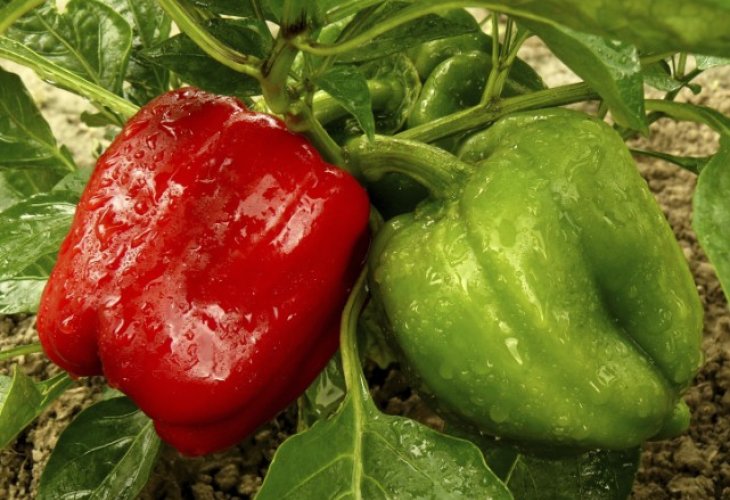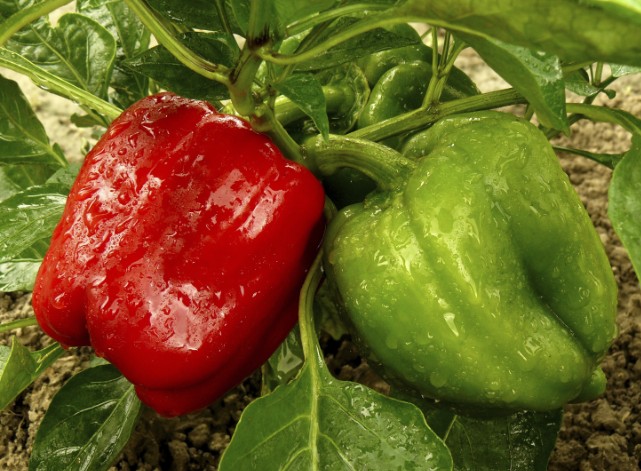Shiphka, Sudani, Shatta and Other Peppers
Their black, white, red, or green appearance varies significantly with all types of peppers available in the market. They can be small and spicy, sometimes sweet - and keep kosher supervisors quite busy.
 Shiphka | Hot Pepper | Sudani Pepper
Shiphka | Hot Pepper | Sudani PepperBackground
The pepper grows on a tree with a trunk and branches that looks like a shrub. Sources even mention that the taste of its branches is identical to the taste of the fruit. The pepper plant has many species and varieties, from sweet peppers to many types of hot peppers, some red or green and even yellow or black. Already in the time of our Talmudic sages, peppers were mentioned as fruits subject to the laws of Orlah, provided that they are normally eaten fresh and not as a dry powder.
In our country too, peppers hold a place of honor, as most of the produce growing in the Arava on tens of thousands of dunams are different varieties of peppers exported abroad. But either way, whether it grows in Israel or alternatively abroad, a clear answer must be given as to why this fruit is not prohibited for consumption, since it is considered a tree that produced its fruits within the first three years of its planting.
This question occupied early and later halachic authorities, and the guiding principle for determining today whether Orlah laws apply to peppers depends very much on the growing method and variety. For example, with hot peppers where produce can be obtained immediately in the first year the tree is planted, and not only that, the life of the tree is not longer than two or three years because the quantity and quality of fruits in those plants decreases, and additionally, the plant develops diseases. Therefore, farmers who grow peppers commercially uproot the plant after a year and replant to prevent a decrease in yield. Because of this, the pepper plant is considered a vegetable and not a fruit, as it differs in nature from a tree that generally lives longer and does not give its fruits immediately in the first year of its life. Therefore, the laws of Orlah do not apply to it. Therefore, "Shatta" pepper (a red pepper with a thin, long appearance typically given in various pickles), as well as Shiphka pepper known to all as the companion of falafel and shawarma, are not subject to the laws of Orlah as a matter of principle.

The Problem with the "Sudani" Pepper Plant
With the "Sudani" pepper plant (usually sold as a dry, red hot pepper) that can live more than three years, according to some authorities, this fact classifies it as a complete tree. However, the problem doesn't really exist in the commercial industry because farmers are not interested in the long life of the Sudani plant since it becomes too spicy for clients' taste and cannot be marketed, so this fact also categorizes it as a plant that is not subject to Orlah laws. On the other hand, some argue that since it's common for the plant to live more than three years, this species is considered a complete tree and all laws of Orlah apply to it. According to this opinion, some who are stringent consume Sudani pepper imported from abroad, even though Orlah also applies abroad, but in any case, there is more room for leniency where the authorities are uncertain about this. By the way, some of the stringent kosher certifications market peppers imported only from abroad. In any case, the opinion of Maran zt"l, with the power of permissibility for several reasons, is that pepper, even Sudani, is considered a plant to which the laws of Orlah do not apply, and its law is like that of eggplants and passion fruit, which are fruits of the earth.
In contrast, the pepper called 'black' or 'white' grows on a climbing plant that reaches a height of four meters or more, and produces its fruits only after four years, a fact that classifies it as a tree. However, as long as it is marketed only after the green fruit is cooked and then dried until it gets a black appearance, or white by peeling the fruit before drying, the laws of Orlah do not apply to it, although if the tree produced varieties that are eaten not as a dried spice, it would be very problematic because of the new shoots that the tree produces on which the fruits grow.
Recommendation
Even if you are relaxed that you haven't violated the prohibition of Orlah with peppers, don't be sure that you won't get into trouble with worms in them. Hot peppers are very infested, especially in the area of the petals. Even Shiphka, sold as a pickled fruit, is infested inside and it is mandatory to open it and remove all the small seed content inside before eating.
More on the same topic:
Pros and Cons: The Advantages and Disadvantages of Hot Pepper

